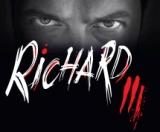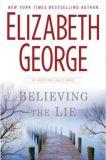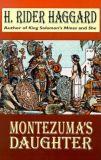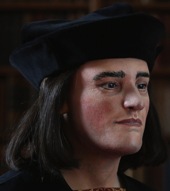 Recently there were a few mentions of Richard III in the media, which differentiate clearly between Shakespeare’s evil tyrant and the historical person.
Recently there were a few mentions of Richard III in the media, which differentiate clearly between Shakespeare’s evil tyrant and the historical person.
The first was Allan Massie, famous Scottish writer and columnist, who wrote on 23 October a column in the UK Telegraph on Gaddafi’s death (we reported). Massie is careful to distinguish between the literary Richard III and the historic Richard III as represented by the Richard III Society, which he mentions explicitly. This is what he had to say (highlights mine):
To forestall complaints from members of the Richard III Society who think him a much maligned figure, a victim of scurrilous Tudor propaganda – and that much is certainly true – let me say that it is Shakespeare’s Richard, not the historical Richard of whom one knows little for certain, that I am talking about. Shakespeare’s Richard then is a scoundrel, a liar, seducer, murderer and tyrant, granted only two redeeming qualities – wit and courage.
The second was Michael Dobson in a review of the film Anonymous in the Guardian on 26 October 2011. He is director of the Shakespeare Institute at the University of Birmingham and emphasises that Shakespeare was not and did not want to be a historian evaluating sources to establish a truthful presentation of his object to appeal to our intellect. No, he was a man of the theatre and wanted to appeal the audience’s imagination:
He gave his audiences Richard III, the hunchbacked wicked uncle, rightfully destroyed by the good avenging prince, for instance, rather than the complex politician of history, defeated and killed by an invading opportunist. History may provide good raw material for drama, but it will need a bit of underlying myth if it is really going to stay in the imagination.
This point was also made by Shakespeare actor John Bell during a recent talk he gave in Sydney.
The last mention (so far) was found by our never-tiring secretary Julia in today’s Australian Daily Telegraph. She tells us that its education page deals with Shakespeare’s villains:
Some of his most interesting creations are his villains. Some are evil incarnate, cruel, vengeful and beyond redemption. Others seem to be victims of their own excessive desires. In some cases, Shakespeare redeems his villains, in others they get what they deserve.
Of course, Richard III features here – Kevin Spacey photo as illustration; others are Macbeths, Iago, Claudius and Aaron from Titus Andronicus. The first part of the article on Richard III is all about Shakespeare’s Richard, but then it continues:
The real Richard was neither deformed not as heartless and ambitious as Shakespeare’s character, but may have been the victim of Tudor propaganda. Shakespeare lived under a Tudor monarch and it had been a Tudor who had defeated Richard to become the first of a new dynasty.
Clearly, our message is being heard, but that does not mean that we can rest on our laurels. After 500 years it is high time that a historically more accurate view of Richard III should prevail, rather than the distorted image that is still found too often. As Julia remarked: “A small dribble on the stone of persuasion, but it all helps!”
Sources:
Allan Massie, ‘Gaddafi’s death shows that there is always pathos in the destruction of the powerful’, The Telegraph (22 October 2011). URL: http://blogs.telegraph.co.uk/culture/allanmassie/100057193/gaddafis-death-shows-that-there-is-always-pathos-in-the-destruction-of-the-powerful/ Date accessed: 23 Oct 2011
Michael Dobson, ‘Out, damn’d conspiracy! Shakespeare was no fraud’, Guardian.co.uk (26 October 2011). URL: http://www.guardian.co.uk/stage/2011/oct/26/shakespeare-is-no-fraud Date accessed: 26 Oct 2011
Troy Lennon (ed.), ‘Shakespeare’s Villains’, Daily telegraph – Classmate (8 November 2011). URL: http://resources.news.com.au/files/2011/11/09/1226189/951723-dt-classmate-villians.pdf Date accessed: 8 Nov 2011
Tags: Richard III, Shakespeare
 Staying in the Upper Hunter Valley to dog and cat sit, while my daughter and her family went skiing, I had of course remembered Richard all day on Wednesday, August 22. That evening I turned on the television for the Gruen Planet programme, and enjoyed half an hour of Stephen Fry and QI beforehand.
Staying in the Upper Hunter Valley to dog and cat sit, while my daughter and her family went skiing, I had of course remembered Richard all day on Wednesday, August 22. That evening I turned on the television for the Gruen Planet programme, and enjoyed half an hour of Stephen Fry and QI beforehand.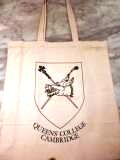 Queens’ College shopping bag (© Dorothea Preis)
Queens’ College shopping bag (© Dorothea Preis)